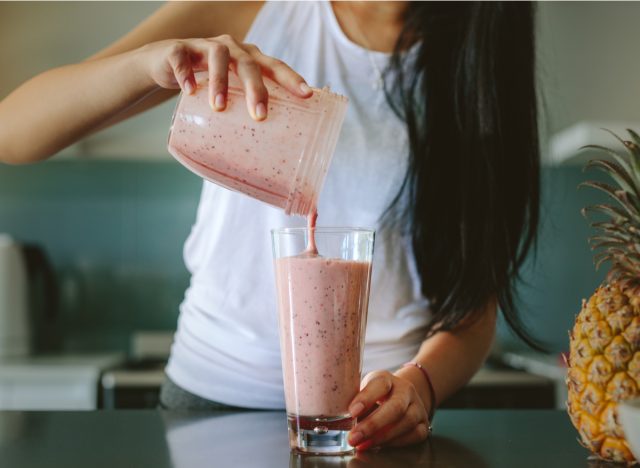Running is an inexpensive way to get your heart pumping no matter when or where you are. Simply put on your running shoes and go for a brisk run for five to 10 minutes each day. Studies have shown that this simple routine can reduce your risk of dying from heart disease and other causes. If you are thinking of incorporating running as part of your regular exercise routine, you might be wondering whether it’s best to eat before or after your run. Here, we will provide you with all the information you need to optimize your workout nutrition.
Proper nutrition is a crucial part of your overall fitness routine.


Working out on the treadmill or pavement is just one part of the equation if your goal is to see noticeable results. Pairing your cardio sessions with the right meals and snacks is key, but when you eat them is also important.
“Food is fuel for your body. If we properly fuel our bodies with appropriate nutrients, we can get more out of our workouts and improve performance,” explains Jordan Hill, MCD, RD, CSSD, a lead registered dietitian from Top Nutrition Coaching. “On the flip side, if we’re not fueling properly, we will be at a disadvantage and likely be putting our bodies at risk for injury and illness.”
This brings us to ask the question, when is the right time to fuel up?
Should you eat before or after a run?


According to Hill, it’s an excellent idea to fuel up before hitting the pavement to rack up your miles.
“Typically, if your run is lasting 45 minutes or longer, it is advantageous to eat something before and after a run,” explains Hill. “After a run of this length, it’s recommended to consume a combination of carbohydrates and protein.”
Now, we’re not suggesting that you have a three-course meal right before you’re ready to get in those strides! What Hill is recommending is some simple carbohydrates that you can absorb and digest quickly about 20 to 30 minutes before your run. Some examples of what you can munch on include pretzels, toast, fruit, and even gummies.
“Carbohydrates are our main energy source and the go-to nutrient we use for energy during exercise,” Hill tells us.
When your run is complete, it’s important to have a little bit of protein along with carbs. “A carbohydrate and protein combo is recommended after a run to restore the carb stores that were spent during the run and help your muscles recover,” explains Hill. “This could be in the form of a meal or hearty recovery snack.”
Hill recommends shooting for 0.3 g of protein per kg of body weight and two to three times that amount for carb intake. For example, if you weigh 150 pounds, shoot for 20 g of protein and 40 to 60 g of carbs.
Plan to add a little extra before, during, and after your run if you plan on running 90 minutes or longer.
There is a list of dont’s. Hill cautions to avoid fiber and fat before your run to avoid stress on your gastrointestinal tract.
“If you want [to recover] properly and reduce inflammation post-run, aim to incorporate anti-oxidant-rich fruits and vegetables and focus on unsaturated fats vs. saturated and trans fats,” she suggests.
Frequently Asked Questions
When is the Best Time to Eat Before a Run?
It is generally recommended to eat a light meal or snack containing carbohydrates and some protein about 1-2 hours before a run. This will provide your body with the necessary fuel to perform well during your workout.
What are Some Pre-Run Snack Ideas?
- A banana with almond butter
- Greek yogurt with berries
- Oatmeal with nuts and honey
- A slice of whole grain toast with avocado
Should I Eat Immediately After a Run?
After a run, it is important to refuel your body within 30-60 minutes to help with recovery. Eating a combination of carbohydrates and protein can help replenish glycogen stores and repair muscle tissue.
What are Some Post-Run Meal Options?
- Grilled chicken with quinoa and vegetables
- Vegetable omelette with whole grain toast
- Salmon with sweet potatoes and asparagus
- Smoothie with protein powder, fruits, and spinach






